| home |
current
schedule |
schedule archive | about |
| DATE |
SPEAKER /
RESPONDENT |
TOPIC |
VIDEO |
| Mon, Sept 15, 12 noon,
Hemmingson Aud (HEMM 004) Mon, Sept 15, 7:00-8:30 pm, Globe Room, Cataldo |
Robert
K. Garcia, Philosophy, Baylor
University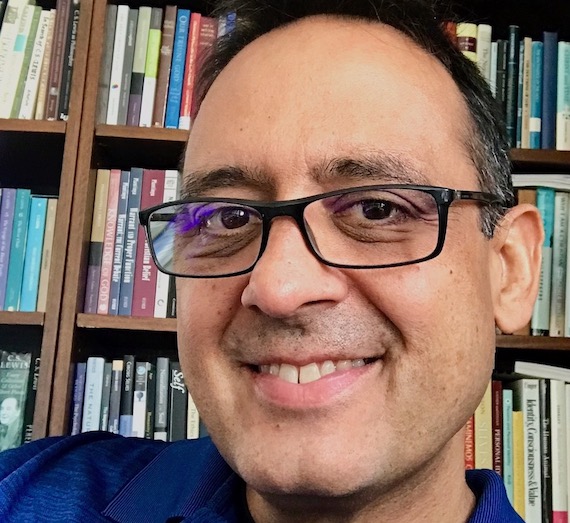 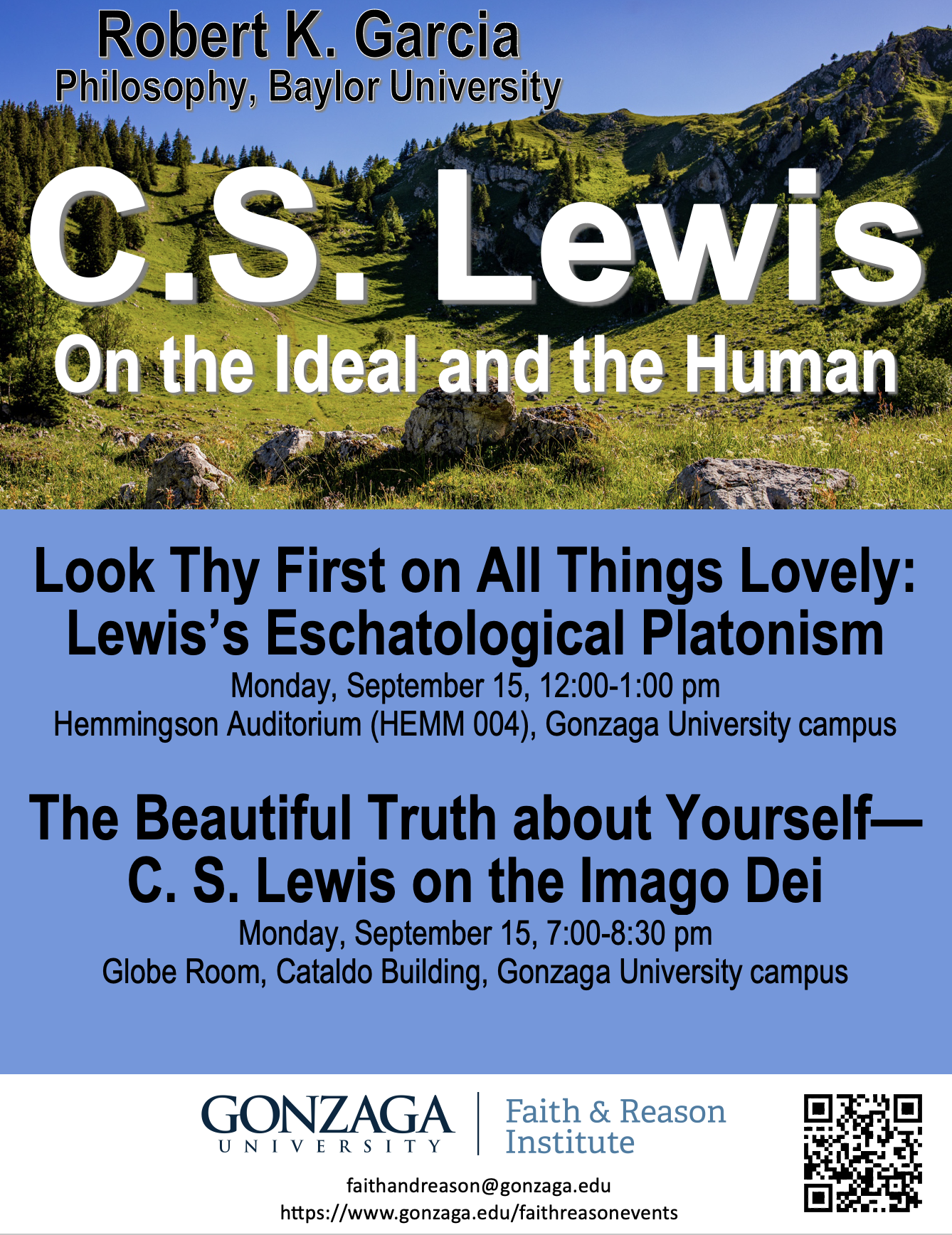 |
C.S.
Lewis on the Ideal and the Human: A Set of
Talks "Look Thy First on All Things Lovely: Lewis’s Eschatological Platonism" Monday, September 15,
2025, 12 noon - 1 pm
Hemmingson Aud (HEMM
004)
Once, while
walking with a student, C. S. Lewis watched a flight of
swans alight on a sunlit river. The student quoted,
“Look thy last on all things lovely, every hour.” Lewis
replied, “No. No. It should certainly not be, 'Look thy
last...’, but 'Look thy first on all things lovely.
Every sight and sound that is good, every touch of
beauty or rightness, is pointing ahead to its ultimate
fulfillment in the world to come." Lewis reminds us that
the beauties we now look upon—whether sunset, flower, or
friend—are not final but first fruits: seeds, glimpses,
and foretastes of what they are meant to become. Their
promise is real though often hidden, growing toward a
goodness that can already be glimpsed here and will find
its full flowering beyond this life. In this talk I will
explore the theory of human nature that underlies this
perspective—what Lewis called eschatological
Platonism—and consider its implications for earthly
pleasures, heavenly bliss, and final destiny.
Robert K.
Garcia is Associate Professor of Philosophy at
Baylor University. His research lies primarily at the
intersection of metaphysics and philosophy of religion,
with particular focus on the nature and value of human
persons. He has authored numerous articles and book
chapters and co-edited several volumes, including Is Goodness
Without God Good Enough? (with Nathan King), Watching
The Chosen: History, Faith, and Interpretation (with
Paul Gondreau, Patrick Gray, and Douglas S. Huffman), Compañero
de la Filosofía Contemporánea de la Religión [Companion
to Contemporary Philosophy of Religion] (with Carlo
Rossi), and Antología
de Filosofía Contemporánea de la Religión [Anthology
of Contemporary Philosophy of Religion] (with Carlo
Rossi). He is currently at work on two books: one with C.
Stephen Evans on Søren Kierkegaard and C. S. Lewis, and
another on Lewis’s views of the uniqueness and value of
each person. You can learn more at www.robertkgarcia.com.
|
|
| Faith, Film, Philosophy 2025 Psyches, Personæ, and Characters: Human Selves in Film October 6-10 A series of public events cosponsored with the Gonzaga Faith & Reason Institute Full information available on the Gonzaga Faith & Reason Events page |
|||
| Joel
Mayward, George Fox University |
Now
Where Was I?: The (In)Capable Self in the Films of
Christopher Nolan Christopher Nolan is undoubtedly one of the most successful and creative filmmakers working today. From the non-chronological plot structures of Memento, The Prestige, and Dunkirk, to the imaginative time-bending sci-fi action worlds of Inception, Interstellar, and Tenet, to the timely moral ambiguities within the Dark Knight trilogy (Batman Begins, The Dark Knight, and The Dark Knight Rises) and Nolan’s neo-noir psychological thrillers (Following, Insomnia), all leading up to the historic award-winning biopic, Oppenheimer, time, narrative, and identity are themes woven throughout Nolan’s filmography. Though his films are noticeably lacking in representations of religion or references to God, Nolan's postsecular cinema nevertheless contains valuable theological and philosophical insights. This paper suggests that Nolan's films can and should be considered works of cinematic philosophical theology—they are doing theology and philosophy through the medium of film as they explore what it means to be human in relation to the transcendent. Every single Nolan film deliberately addresses the subjective nature of human identity and self-understanding. Indeed, the nature of the human self is an essential concern for Nolan—in interviews about his films, he regularly mentions a desire to explore the “subjective” human experience or the relationship between “objectivity” and “subjectivity.” By drawing upon the perspectives of St. Augustine of Hippo and philosopher Paul Ricoeur, we can trace a cinematic theological anthropology through Nolan’s films: what it means to be human is to be a wounded-yet-capable self. Joel Mayward is Assistant Professor of Christian ministries, theology and the arts at George Fox University. His areas of academic and teaching expertise include Christian ministry leadership, theological aesthetics, contextual theology, theology and philosophy in film, liberation theologies, continental philosophical theology, and the spiritual formation of youth and young adults. In addition to books on church ministry, Joel is the author of The Dardenne Brothers' Cinematic Parables: Integrating Theology, Philosophy, and Film (Routledge, 2022) and the forthcoming Cinematic Transcendence: Theology and the Films of Christopher Nolan (Lexington Books/Fortress Academic, 2025). For several years he has been a professional freelance film critic as a member of the Online Film Critics Society and a “Tomatometer-approved critic” for Rotten Tomatoes. He also runs a film criticism website, cinemayward.com. |
|
|
| Tom Hibbs, Baylor University |
Inescapable
Moral
Horizons: Kieslowski's Blue and Charles Taylor
on the Self in Moral Space
Toward
the
end of the film Red, the last
in the Three Colors trilogy from Krzysztof Kieslowski
(1941-96), the main character, Valentine, says, "I feel
something important is happening around me." Many of the
films by the acclaimed Polish director feature
characters who realize that, as the moral philosopher
Charles Taylor puts it, "something incomparably
important is involved" in their deliberations and
choices. In the specific political and social context of
late 20th-century Poland, Kieslowski's films attempt to
recover and depict what Taylor calls "inescapable moral
horizons." Perhaps its most dramatic depiction occurs in Blue, the first film in the
trilogy. The story of Julie, Blue’s main character, illustrates the many
ways in which a self that is "free from all frameworks"
is in the grips of an "appalling identity crisis."
Through the course of the film, as Julie recovers her
connection to others, the film also demonstrates the
intimate connection between individual "identity and a
kind of orientation" in moral space. Thomas
Hibbs, Rayzor Professor of Philosophy and Dean Emeritus
at Baylor University, is a prolific Catholic author,
speaker, philosopher, and university administrator. His
research and teaching focus on moral philosophy and
aesthetics. He has published eight books, the most
recent of which is Theology of Creation:
Ecology, Art, and Laudato Si’
(University of Notre Dame Press, 2023), as well as many
scholarly and popular articles, and has delivered
lectures across the U.S. and abroad. Hibbs was the
inaugural dean of the Baylor Honors College (2003-2019)
and the founding Director of Baylor in Washington
(2015-2019). He has held administrative
appointments as department chair (Boston College), dean
(Baylor), and president (University of Dallas). Hibbs
directs a summer program for Baylor undergraduates in
Washington, DC on religion and social life. |
||
| Vernon
Cisney, Gettysburg College |
"We
Are Not What Was Intended: The Failed Nihilism of
David Fincher's Seven"
David
Fincher's 1995 film Seven ends on a notoriously
bleak note. Driven by a religious fanaticism, John Doe
has completed his 'masterpiece' of illustrating the
destructive nature of the seven deadly sins by luring
Detective Mills into assisting with his plan. 'He wins,'
as Detective Somerset says. I argue, to the contrary,
that Doe does not, in fact, 'win,' that his nihilistic
program ultimately fails because it is predicated upon a
contradiction, that Doe's project requires a
selfless servant as its executor, and Doe, as we
learn, fails in this respect. Doe's interpretation of
his calling is driven by a flawed understanding of the
Christian ethic of kenoticism, the injunction of
self-emptying at the core of the Christian message. I
use the work of Søren Kierkegaard to articulate a
more accurate understanding of the kenotic ethic, one in
which the self is not annihilated (as Doe understands
it), but is actualized authentically in the mode of
divine love. |
||
| Mon, Nov 17, 5:30-7:00 pm, Wolff
Aud (Jepson114) |
Kirk
Besmer (Philosophy, Gonzaga University) response by Tim Clancy, S.J. (Philosophy, Gonzaga University) |
AI Society:
Griefbots, Companion Bots, and the Culture of
Simulation Kirk Besmer
(Philosophy, Gonzaga University) response by Tim
Clancy, S.J. (Philosophy, Gonzaga
University) For several years,
the internet and the screens we use to
access it have been a site of social interaction with
other humans, but today –
thanks to AI – people are choosing to socialize with
‘bots.’ What does this
mean? What is at stake? This presentation will explore
some of the issues
related to griefbots and companion bots as exemplars of
the culture of
simulation. What features does the culture of simulation
have? What
relationship does the simulated social culture of AI
have with the “real
world”? What are apparent advantages and disadvantages
of social interaction
based on AI?
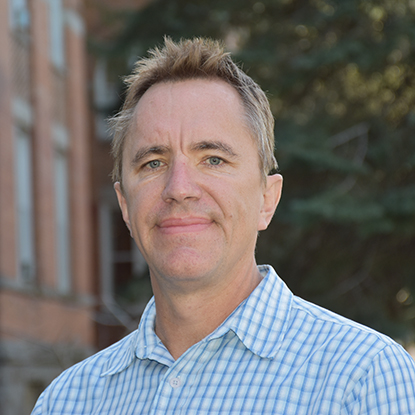 Kirk Besmer is Professor
of Philosophy at
Gonzaga University, where he has been teaching since 2003.
His research and
teaching specializations include phenomenology and
existentialism. He has a
particular interest in philosophy of technology,
especially the impact of
technological developments on our understanding of Kirk Besmer is Professor
of Philosophy at
Gonzaga University, where he has been teaching since 2003.
His research and
teaching specializations include phenomenology and
existentialism. He has a
particular interest in philosophy of technology,
especially the impact of
technological developments on our understanding of 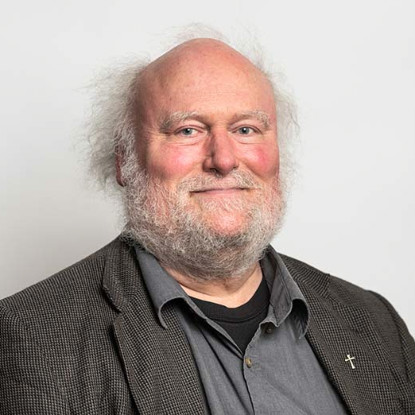 the human condition. the human condition.Fr. Tim Clancy is a priest in the Society of Jesus who focuses on the impact of digital culture on human religious practice. |
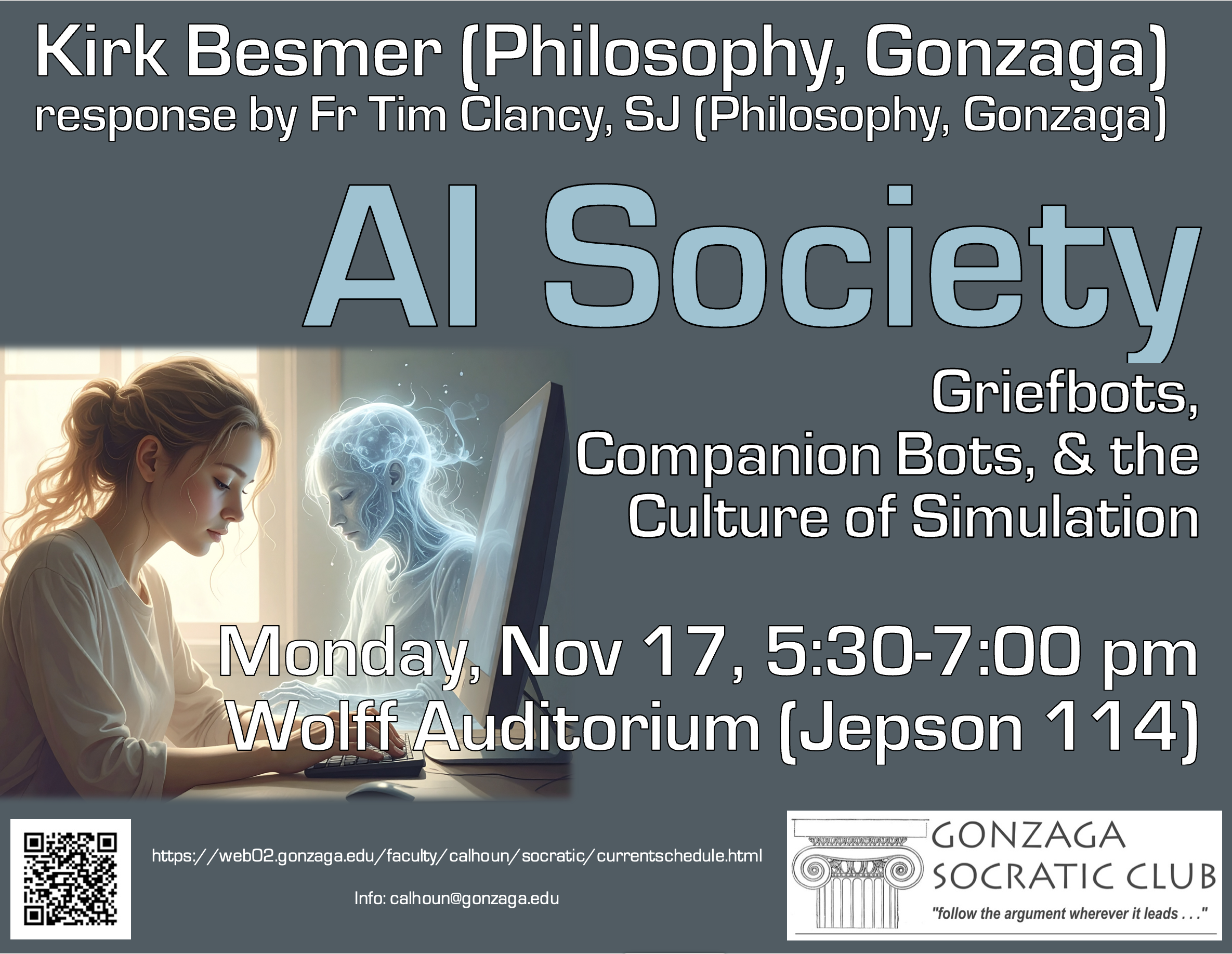 |
INFORMATION
For information about the Gonzaga Socratic Club or to
propose topics or speakers for future meetings, contact the
Club Director: